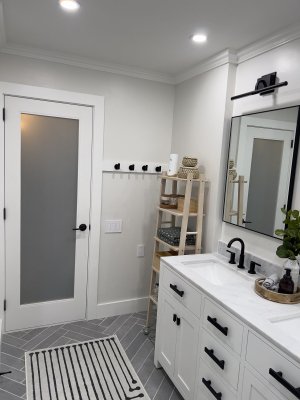- Nov 16, 2001
- 3,949
- 1,197
For your first point, a broker (of any kind [insurance, loans, etc]) can shop around for the best rate and is not captive to just one company. If you go to a bank, you're only going to get their products. I would shop around either way and get at least 2-3 options so you make sure you're comfortable with what you're getting. As I've stated before, don't just shop based on rate. Make sure they can actually close the loan on time.
Hey guys, after a lot of reading over the pass several months I've finally taken the first step and spoke with a mortgage broker about starting the pre-approval process.
What would my biggest advantage be going with a mortgage broker versus any other local bank?
Another thing I hope someone can help me better understand is the following:
The mortgage broker stated that if I were to take a slightly higher interest rate then I'd be able to get a cash payout towards my loan because he gets paid more commission on the higher % loan and he can only accept a set percentage.
In other words if I take a loan with a 3.375 loan rate, he'd get paid 5% of the loan of which he can only personally accept 2.75%. The remaining 2.25% of what he'd get paid he can apply towards my closing costs, etc. If I take the 3.25% loan, he'd get 2.75% or less and no money would be given towards my costs.
Doing a rough estimate of purchasing a 350k home, we calculated that it would take approximately 9 years for the two loans to break even and then the initial loan would start costing more. Has anyone ever done a loan like this? Should I steer clear, or is this something good to consider?
To your second point, increasing the rate to cover closing costs is pretty standard. 8-9 years is what you'll find for the breakeven between tiers almost anywhere. The lower your rate, the more you'll be bringing out of pocket. If you know for sure you won't be staying more than 8 years, take the point where you won't have anything coming out of your pocket. I generally steer away from picking the highest rate with the most money back because you might be more likely to blow it or spend it on something else instead of just having a lower payment and putting any extra towards the principle later on.


 . The only downside is having to shovel so much sidewalk in the winter :x
. The only downside is having to shovel so much sidewalk in the winter :x

































